Explore
Search results

Even a generation ago, fundamental existential questions may have appeared as forever inaccessible metaphysical questions. How did the universe begin? How will it end? Are we alone? Are there universes? Remarkably, in the past decade or two and in some cases in the past year or so, it has become clear that all of these are accessible at least in principle, to experimentati...

The nursing crisis is a healthcare crisis. Reports across the country are ominous –70% of nurses are reporting burnout, 32% are considering leaving the profession, hospital RN vacancy rates are 19% and accelerating. And the pipeline for new nurses is choked – nursing educators are leaving in droves, resulting in 80,000 highly-qualified prospective students being turned awa...


In the face of a spiraling opioid epidemic, alternatives for addressing chronic pain are essential. Taking a placebo may turn out to be just the prescription we need. Neuroscientists have discovered that a pill with no pharmaceutically active ingredients can reduce responses in the brain’s pain centers, and trigger the release of endorphins, the body’s own chemical pain re...



On November 9, 2020, as coronavirus cases surge, President-elect Joe Biden named a COVID-19 Advisory Council. Aspen Ideas has been honored to host several of the council members over the years. While only a few of the talks listed here are about the pandemic, each gives a window into the speakers and their expertise in public health. Congratulations to Ezekiel Emanuel, Atu...

Generation after generation, we’re doing a pretty good job at regeneration. Yet sex continues to be a confusing subject — laden with ignorance, taboo, and shame — and the addition of technologies for connection, gratification, and reproduction are changing the landscape of intimacy. What do we really know about sex, and will we ever be good at talking about it?

In less-developed countries, parasitic roundworms can colonize the gut and cause significant intestinal problems. But autoimmune diseases, the devastating package of disorders in which the body’s immune system attacks healthy cells, are rare in those places. By contrast, in the United States, where roundworm infections are no longer part of the ecosystem, as many as 50 mil...

Dip into a groundbreaking medical memoir by Kurt Newman, president and CEO of Children’s National Medical Center and one of the leading pediatric surgeons in the United States. Newman spotlights resilient children and the medical professionals dedicated to their care, describes innovative therapies on the horizon, and issues a heartfelt call to give greater priority to ped...

Advances in health and medicine no longer rest entirely in the hands of scientists and clinicians. Patients and citizen activists are stepping up to influence research priorities, crowd-source data, and scour arcane medical literature in search of novel experimental approaches. Often, they are motivated by personal experiences, the refusal to accept that a disease lacks tr...

Technology is swiftly disrupting all the norms of health care delivery, and more radical change lies ahead. Unmanned aerial vehicles (better known as drones) are delivering supplies; health services are moving out of medical settings and into the community; telemedicine is bringing specialty care to remote areas; and “collective superintelligence” at the intersection of hu...

Hospitals and health systems have a critical role to play in turning health equity talk into action. Learn how the field is using strategic investments to drive innovative solutions forward. Presented by the American Hospital Association.
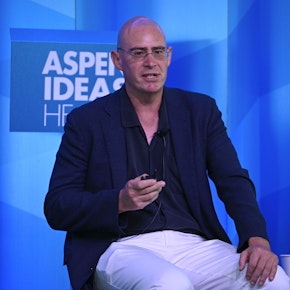
Knowledge about the human microbiome, those trillions of bacteria, viruses, and other microbes that inhabit our bodies, is revolutionizing medicine just as mapping the human genome continues to do. Indeed, what we are learning could take us even further because the microbiome can be altered by diet, exercise, and stress control. Computational biology, DNA sequencing, and o...

Aspen Ideas: Health is where the arts meet health. Ahead of the 10th annual event this summer, we're looking back at some of the innovative artists, musicians, actors, filmmakers, playwrights, and dancers who have shared their creative expressions of the mind, body, and spirit on our stages. Explore how the arts help expand our understanding of health and well-being.
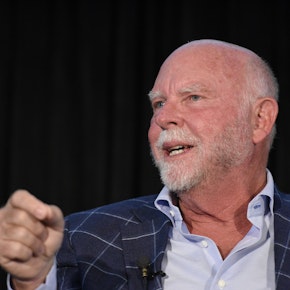
Dr. J. Craig Venter, one of the pioneers in human genome sequencing, talks about coming opportunities to use genomics, advanced technology and machine learning to custom-tailor individual care and fundamentally alter the practice of medicine.

When voices rise together in song, dancers tango across the floor, or a painter takes to a canvas, they may be engaging in a hobby, a passion, or a career. Most likely, they aren’t thinking about their brain circuitry or the cascading biochemical responses being sparked by their artistic pursuits. But we now have imaging technology and wearable sensors that can capture tha...
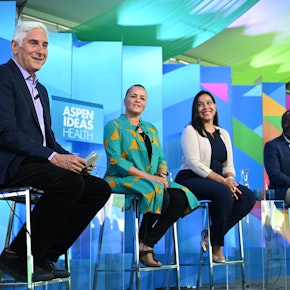
No doctor awakens in the morning determined to discriminate against patients of color, yet their daily clinical decisions too often have that result. Implicit bias—unconscious assumptions and stereotypes—often cause the harm. The failure to ask the right questions, listen closely and reserve judgment can sabotage communication in any patient/physician encounter, but it wor...

We’ve gone way beyond fitness trackers to collect information about our bodies’ physiological processes. Wearables are being designed to detect early signs of Crohn’s disease and other inflammatory diseases, identify signals of insulin resistance, and warn of blood pressure changes that could signal pregnancy complications. Some devices don’t even have to be attached to th...
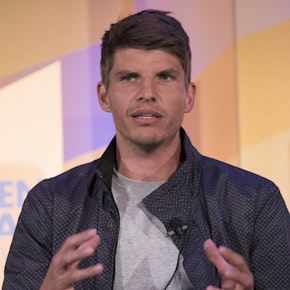
Williams, Jordan, James, Brady. They’re among a growing class of the superstar athletes delivering career-best performances well past what's been considered peak age for their sports. As this phenomenon becomes more common, it begs the questions how and why now? How are experience and maturity winning out over inevitable, natural physical decline? Athletes in the 30s and 4...
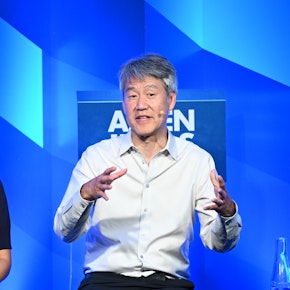
AI is transforming health, with implications for early disease detection, diagnostic accuracy, medical decision making, precision surgery, and personalized treatments. By speeding data collection and analysis, it can accelerate research, refine drug development, identify disease outbreaks, and enhance remote patient monitoring. But efficiency is not a substitute for empath...


